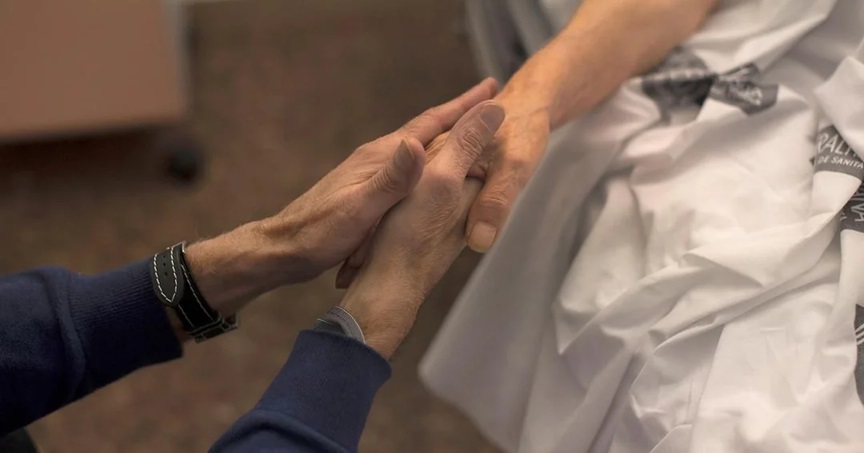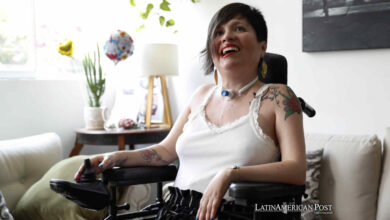Colombia’s Reckoning With Dignity: Euthanasia Access Expands Amid Unfinished Debate

Colombia’s sharp rise in euthanasia cases is not a moral collapse; it is a moral reckoning. A new report shows that more Colombians are asserting their right to end unbearable suffering, even as bureaucracy and geography still deny others that choice. The question is no longer whether the country accepts dignified dying; it is whether the country accepts dignified dying. It is whether the state will stop making people suffer through delays, disparities, and endless debate.
A Decade That Changed the Meaning of Choice
In 1997, Colombia became the first country in Latin America to decriminalize euthanasia. But it took eighteen long years for the practice to be regulated, with the first lawful procedure finally taking place in 2015. Since then, the cultural and medical landscape has undergone a decisive shift.
According to a recent analysis by the Laboratorio de Derechos Económicos, Sociales y Culturales (DescLAB), euthanasia procedures multiplied by 88 between 2015 and 2024. Last year alone, at least 352 procedures were carried out, nearly 30% more than the year before—the highest total on record. Yet in the same period, only 30% of the 1,169 requests were approved, the lowest approval rate since records began. Demand grows, but approval shrinks.
This divergence speaks to progress and unfinished business. In 2021, Colombia’s Constitutional Court removed the requirement that a patient be terminally ill, acknowledging that incurable but non-terminal conditions can be just as devastating. And yet, institutional inertia continues to ration a right that has existed in law for nearly three decades.
Beyond Cancer, Beyond Taboos
For years, euthanasia in the public imagination was reduced to cases of late-stage cancer. The new data breaks that stereotype. Roughly three-quarters of procedures since 2015 involved oncological diagnoses—stomach, pancreatic, lung, and other aggressive cancers. However, a full quarter was attributed to non-oncological conditions, and this share has increased since the 2021 ruling.
By 2024, more than two-thirds of requests came from people suffering from advanced or severe incurable diseases, while strictly “terminal” cases represented just a quarter. This shift underscores that the right to die with dignity is being exercised across diverse forms of suffering, not confined to one disease or prognosis.
The lesson is clear: relentless pain, neurodegenerative decline, and irreversible loss of function can destroy a life long before a physician declares it “terminal.” Forcing people to wait for that box to be checked is not a compassionate approach. It is cruelty disguised as caution.
The Moral Case—and Its Critics
The principled argument for euthanasia rests on three pillars: autonomy, relief of suffering, and respect for personal values. In practice, the argument in Colombia is strengthened by the way euthanasia exists alongside palliative care, not in place of it. Choosing to stop a medical ordeal does not erase other care options—it completes them. When no intervention can restore what a person recognizes as a life worth living, euthanasia becomes a way to honor the spirit of medicine’s oath: not harm.
Critics warn of a slippery slope. Yet Colombia’s experience, like that of other countries, shows the opposite. Safeguards are rigorous: multidisciplinary committees, informed consent, and legal oversight. The scandal today is not one of overuse, but rather a lack of access, information, and consistency.
Some argue that suffering ennobles, or that only God decides. In a plural democracy, one citizen’s theology cannot dictate another’s fate. The right not to choose euthanasia must be absolute; so too must the right to select it.
Others worry that people request euthanasia because of poverty, loneliness, or lack of care. These injustices are real and demand an urgent response. But denying euthanasia does not fix them; it only forces endurance on those already burdened. The moral response is dual: expand social protections while ensuring every euthanasia request is carefully vetted for medical eligibility and voluntary consent. Dignity is not a zero-sum good.

EFE
Stop the Gatekeeping, Keep the Safeguards
Colombia’s gaps in implementation are glaring. In 2024, review committees took an average of 33.5 hours to respond, breaching the legal 24-hour deadline. On paper, it is a minor delay. In practice, for someone in agony, it is an eternity. Even more troubling, 85.5% of all procedures occurred in just two regions—Bogotá and Antioquia. Postcode remains a proxy for access.
This pattern shows that the guarantee of the right still depends on residence and institutional will. The solution is both practical and urgent: streamline committee protocols, enforce timelines, train medical teams across regions, and mandate public reporting so that delays and denials can be audited instead of being buried.
Transparency should include reasons for refusals, appeal pathways, and the availability of independent second opinions—safeguards that protect patients and clinicians while preventing conscientious objection from morphing into systemic obstruction. Public education must also expand. Requests still vastly outnumber approvals, in part because many Colombians are unaware of their rights or how to navigate the process. A right confined to court rulings and big-city hospitals is not a right at all. It is a privilege.
The fiercest opponents will continue to argue that any euthanasia is too much. But Colombia’s debate has shifted. The question is no longer “whether.” It is “how.” How to ensure every qualified patient who wants this option can access it fairly, safely, and without delay—and how to prevent anyone from being pushed toward it by neglect.
Also Read: Colombian Thunder at the UN: Petro’s Challenge to Missiles, Myths, and Mimicry
Euthanasia will never be simple, nor should it be. However, Colombia already has the legal framework, jurisprudence, and lived experience to make it. What the country cannot afford is a perpetual argument while people suffer beyond their limits. Dignity is a verb. It is time to act like it.





